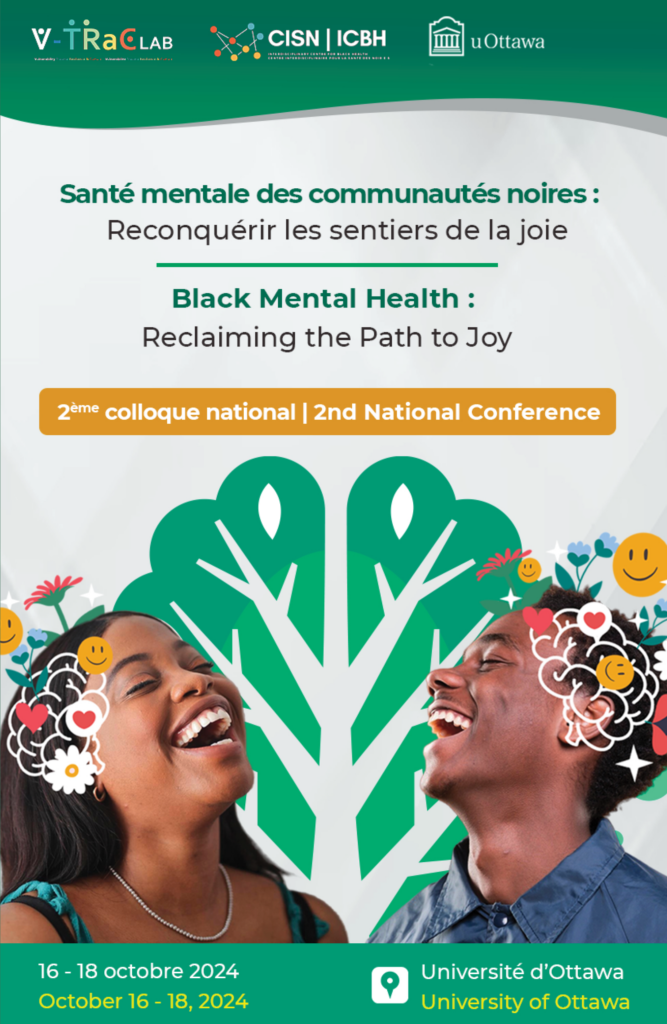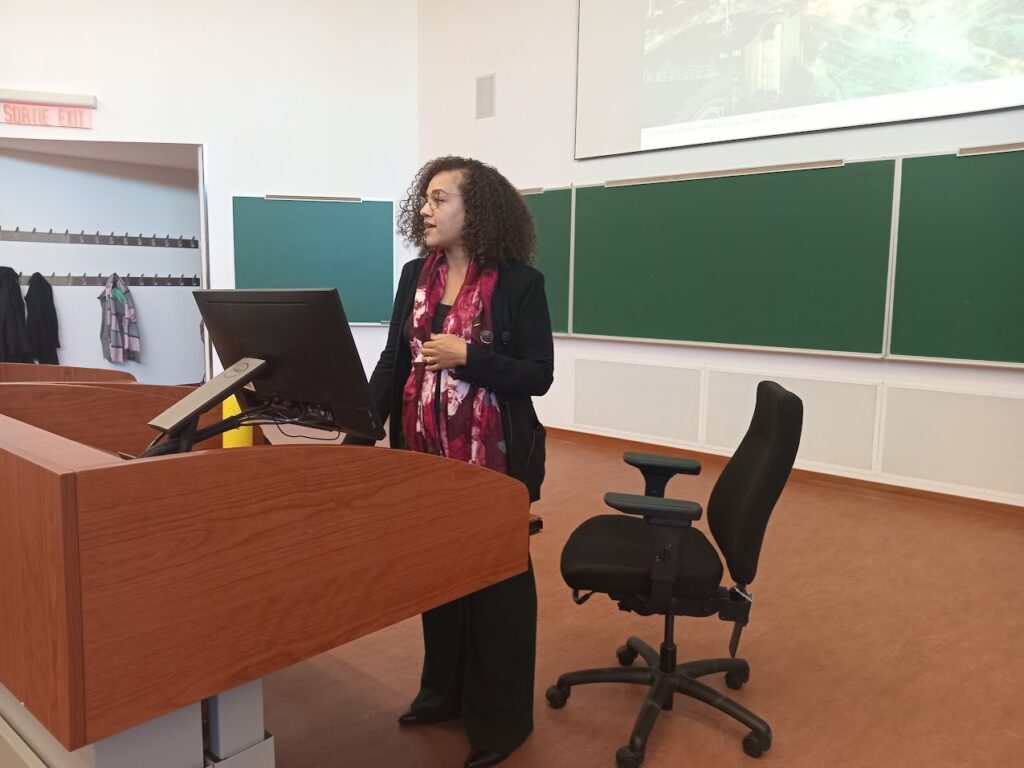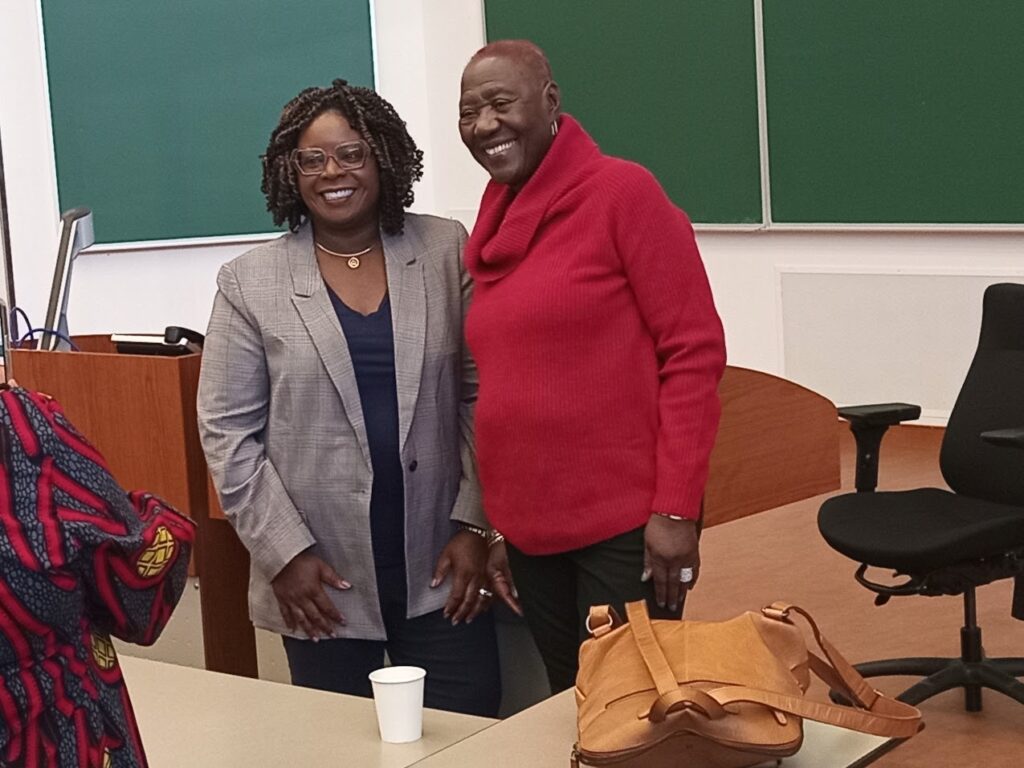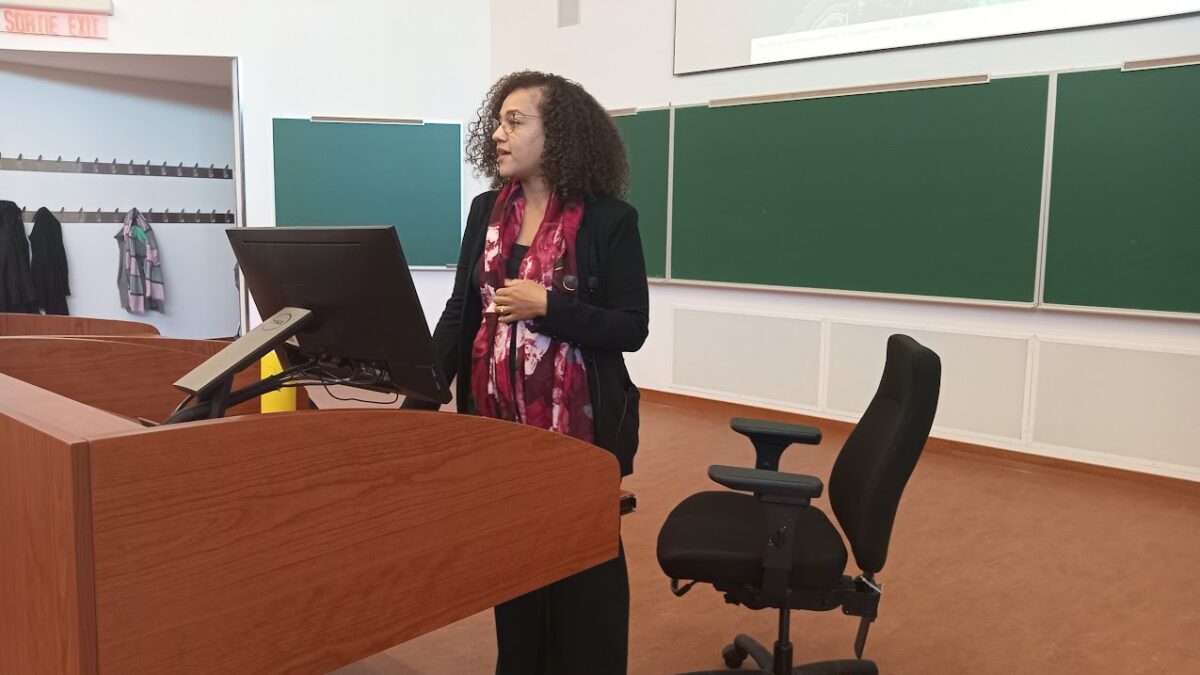
Thursday 17 October 2024
Racism still major factor in the mental state of ACB community – Academicians

By Tom Malaba, Editorial Associate
Academicians and professionals attending the second national mental conference on Black Mental Health : Reclaiming the Path of Joy have pointed an accusing finger at racism as a major contributor to the mental well-being of members of the African Caribbean and Black communities living in Canada

The three day conference drew teachers and their students working to better the lives of people with mental health challenges from Ottawa University, McGill University, Yale University, University of Southampton met on October 17 in the Faculty of Social Sciences at the University of Ottawa to appreciate the challenge that racism continue to adversely ravage members of the Black communities.

Among these distinguished academicians was Dr. Myrna Lashley works with the Division of Transcultural Psychiatry in Department of Psychiatry at McGill University, while presenting her research findings: Black Joy : Throwing off the Shackles, Refusing to Surrender to Injustice, Dr. Lashley quoted James Baldah; “Not everything that is faced can be changed, but nothing can be changed until it’s faced.”

Dr. Lashley together with Drs. Yvette Bonny and David William had their work in the field of mental health recognized with an award of Honorary Doctorates by Provost Jacques Beauvais and Chancellor Claudette Commanda during the conference.
To drive her point home, Dr. Lashley borrowed another quote from Gianna, the daughter of murdered Black American George Floyd, “Daddy changed the world.”
Dr. Lashley observed that the way most things were being done before the murder of George Floyd and now had been changed.
“It was a unifying incident for all black people. Black people should start holding systems accountable,” Dr. Lashley observed.
“Nothing should be done on us, about us without us,” Dr. Lashley said of the need to throw off the shackles and refuse surrender to injustice adding that that would help in demanding and provision of culturally appropriate care to members of the ACB community facing mental health challenges. “As an ally if you want to help me stand next to me but not ahead of me. We want the support but we are resisting the stereotype,” Dr. Lashley observed. Borrowing the African analogy of Ubuntu, we are because you are, said there is a need to create room for others to have what you have.”
She discourages shadowboxing the system regarding mental health issues. “In combating racism, we do not make progress when we combat the people themselves. We have to combat the material system that produces racism.
Dr. Lashley urged participants to refuse to surrender saying taking this stance had scored positives for the ACB community that unlike before dermatology students were now being taught about the black skin.
Another Academician, Dr. Josephine Etowa, Associate Professor from the School of Nursing University of Ottawa also presented a paper on Fostering Community Resilience Through Community Based Participation Research Approach as a Resource for Mental Health and Well Being in Black Canadian Communities.
“As the ACB, we are rendered vulnerable because of the circumstances we find ourselves.”
Multiple historical and present-day factors have created the conditions within which Black Canadians are rendered vulnerable to both physical and mental health problems such depression, HIV, COVID-19, hypertension, diabetes and cancer.
“Some of the present-day factors affecting the mental health of the ACB include poor representation in healthcare leadership, lack of research and appropriate decision making, and lack of culturally appropriate services.”
ACB community members still face employment discrimination, health care provider bias, poor representation in health care bias, lack of research and appropriate decision making and lack culturally appropriate services.
Dr. Etowa observed that racism was still a major cause of Black Mental Health inequalities. “This calls for a multiprong approach to research with a theoretical framework that examines both the system and the community,” She observed.
According to her, racism plays out in our society including schools, neighborhoods, and work. Its clinical effects are psychological leaving its victims emotionally traumatized, with low self-esteem. And lastly, biological factors all of which need targeted policies to address the purpose, the process, the people, the place where its identified and those in power for the well-being of the ACB community.
Dr. Etowa advocates for research that promotes respect, is equitable, diverse, inclusive and fosters a meaningful engagement of the ACB community. This research should follow the social-ecological model, intersectionality theory. “This integration of theories facilitates the discovery of the layered forces of oppression that may be at play in a given situation like issues of race, racism, ethnicity, gender, migration, and class in addition to specific factors.”
Dr. Etowa single out the Community Based Participatory Research (CBPR) as an effective means of mobilizing for collective social action to address the community needs and creating change at multiple levels in the ACB community. She says this tool helps the community determine the research question, participate in decision making as a team. She says community members should be involved in analysis saying this will help build partnerships that outlast the project and even help community members initiate their own programs.
Another such program she advocates for to build resilience with in the ACB community is Peer Equity Navigators (PENs). These are internationally trained health or social professionals that share commonalities with community members. “These build on their training during research because they are seen as approachable, and trustworthy which fosters communication and partnership,” counselled Dr. Etowa.
During question time, Dr. Etowa re-affirmed that inability to access mortgages from banks had a way of affecting the health of ACB community members.
Dr. Angela Haeny, an associate professor from Yale School of Medicine in her paper: “For us by us: Improving Black Mental Health Through Tailored Alcohol and Drug intervention, observed that more Blacks had died from drug overdose in the US between 1999 and 2019.
During the same period though more blacks in the US reported needing medication they did not show up to receive it, which proves they could have resorted to alcohol and drug use.
According to Dr. Haeny, experiences of racism had left individuals stressed and traumatized after being faced with institutionalized racism. Such individuals had been faced with an incidents of being looked down upon, a traumatizing event or come face to face with overt and covert racism and cultural trauma.
Others people have come face to face with violation through humiliation, abuse, crime victim, escalation to violence. Others faced loss through death, rejection, relationship. Others its parenting that caused loss of child, conflict with parents, co-parenting tension, and parenting engagement. Others members have faced betrayal by way of false accusations, feeling used, lack of trust, disrespected by others and significant other betrayal. Others have had mental health challenges by way of isolation verses support that left some people feeling controlled, feeling lonely in the world and failing to get support.
Loss of housing, homelessness, arrest, probation, incarceration and alongside unemployment, poor performance, parenting problems, accident, injury, illness of others and miscarriage.
Dr. Jude Mary Cenat, n Associate Professor of the School of Psychology, University of Ottawa presented a paper on Racial complex trauma; the mind, the body and the heart.
“I have been approached by young men 30 – 40s, saying they are tired of being faced with racial slur. When you experience racial discrimination it leaves you in a shock,” Dr. Cenat said adding that this trauma triggers an emotional response.
“Racial trauma is trauma based on skin color, it triggers off depression, low self-esteem and suicidal thoughts,” he noted.
Dr. Cenat told participants that the ACB community could not hide when statements like ‘my burnt Rose’ are being thrown at community members. “We have to treat the action for what it is.”
His suggestion triggered a reaction from Dr. Mary Lashley who advised that people need to talk about their pain. “That’s why I do not agree with the term micro-aggression which seeks to stem the fact that racism does not exist,” Dr. Lashley observed.
To address issues of complex racial trauma, Dr. Cenat suggests therapist must recognize the experiences of their clients. Provide an environment to help clients protect themselves from against new occurrences, help clients question the cognitive distortions that lead them to blame themselves and work through them. Therapists are encouraged not to be judgmental but supportive to help clients to address their anger issues. And in order to help clients cope, therapists should create a supportive environment to help them share their experiences among others.
Dr. Cenat calls for knowledge of cultural, social historical context of mental health problems. This can be done through creating aware of racial issues, assess adapted to racial issues and a humanistic approach ti medication management. There is also a need to provide tailored mental healthcare to the adolescents from ACB communities.
“…all our phrasing – race relation, racial chasm, racial justice, racial profiling, white privilege, even white supremacy – serves to obscure that racism is a visceral experience, that it dislodges brains, blocks airways, rips muscle, extract organs, cracks bones, breaks teeth.” Ta-Nehesi Coates.

